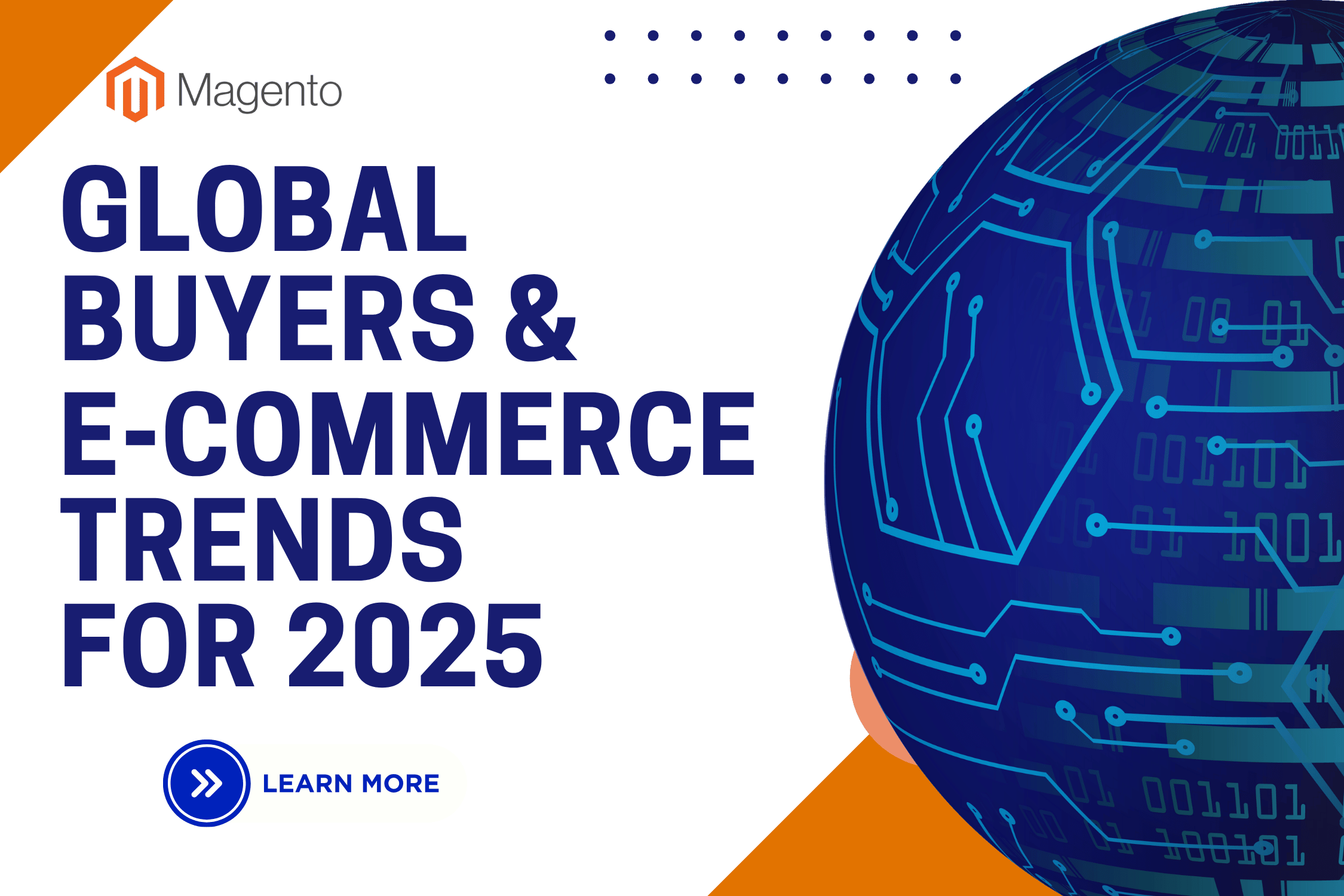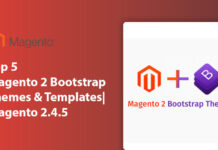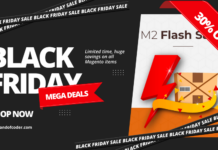
Global buyers & e-commerce trends are transforming how businesses operate in the digital age.
The trend of online purchasing is increasing day by day as it offers convenience and saves time. The trend of online purchasing is increasing day by day as it offers convenience and saves time.
Whether it’s small or large businesses, nowadays every business prefers online buying and selling to operate beyond the geographical boundaries with ease. Products are delivered to customers worldwide with just a click. The global e-commerce market is opening new doors of opportunities for businesses worldwide to shift their business online and discover the e-commerce trends that will help their business reach a new global market of online trading.
Taking your business online requires strategic planning, and the key to that growth is finding the right international buyers! Having the ability to understand global buyer behavior and considering trending topics is more important today than ever before. As a solo e-commerce store or a B2B vendor, global market expansion enables you to grow sales, gain resilience, and diversify risk.
In this blog post, we will discuss how to find international buyers for your business from different industries and e-commerce trends that are shaping the market in 2025, with key challenges and actionable tips to stay ahead in the e-commerce business world. If you are an established business or just starting out, then this blog is for you. Read on to discover the best international marketplace and strategies to find wholesale buyers for cross-border commerce in 2025 with e-commerce analytics and trends!
Table of Contents
I. Latest E-commerce Trends 2025 Shaping Global Buying Behavior
E-commerce is an industry where new trends emerge every day. In 2025, customers are looking for products that deliver value to them at an affordable price range. They are looking for something more than a product; they want personalization, convenience, and values that appeal to them.

Sellers should follow the current trend to stay ahead in the competitive e-commerce business world. The following are the emerging e-commerce trends that are shaping global buying behavior in the market:
• AI-driven personalization
Among the largest trends is personalization through AI. From product recommendations to email marketing, AI helps sellers understand what customers want and when. This drives conversions and loyalty.
• Green & Sustainable Products
Another increasingly popular trend is the demand for green, sustainable products. Buyers, especially in North America and Europe, are choosing global-ready brands that care about the environment. If your supply chain is ethical or your packaging is green, you can get customer trust.
• Social commerce
Social commerce is also on the increase. Instagram and TikTok are not only fun platforms anymore, they’re shopping platforms. Customers find and buy things through reels, live streams, and influencer posts.
• Mobile-First Shopping
Mobile-first shopping is on the increase, particularly in Southeast Asia and Africa. If your site is not mobile-friendly, you’ll miss out on sales.
• BNPL (Buy Now, Pay Later) Models
Another such model is the BNPL (Buy Now, Pay Later) model. Frenzy in markets such as the US, UK, and Australia offers greater consumer flexibility, which results in increased order values. In order to remain competitive, the vendor needs to respond by changing strategies.
Leverage AI technology for personalization, go green with the product line, and use social selling. Furthermore, BNPL can be used as an option through platforms like Klarna or Afterpay. Regional focus is equally important, making it mobile-first, where the phone is the medium of preference, and highlighting eco-features in Europe.
II. Why Global Buyers Matter in 2025?
Cross-border e-commerce is the trend nowadays. International online purchases are projected to reach over $6.3 trillion in 2025, with most of them being from overseas buyers. Either a D2C brand or a B2B manufacturer, global expansion equals more consumers, greater revenue potential, and long-term business security.
Exporting to foreign consumers helps you expand more quickly, particularly if your home market is saturated. It also helps you manage risks; if one region’s market slows down, you will have an option to choose another market. Second, overseas customers tend to have higher purchasing power and are willing to pay higher prices for high-quality products or services.
For example, a small Korean skincare company opened up in the Middle East through online channels. They increased their sales by 3 times in six months just by knowing regional tastes and providing product descriptions in Arabic. International selling also enhances brand credibility. When overseas customers believe in your product, it works like a ripple effect.
Global buyers are not just significant; they’re important for businesses that are future-ready.
III. How to Identify and Research Global Buyer Markets

In order to sell internationally, you must understand where your goods are in demand. Let’s discuss how to segment markets:
3.1. Criteria to Segment Markets
- Demand: Utilize sites such as Google Trends to learn what’s in demand.
- Regulations: Research the regulations of goods and importation regulations for the destination country.
- Buying Power: Look at average income and patterns of consumption.
- Language and Culture: Understand the language and culture of the buyers’ country you are targeting.
Tools to Utilize
- Google Trends: Consider what is trending by location or search term.
- Jungle Scout: Ideal for Amazon sellers to keep track of product demand and competitors.
- Semrush/SimilarWeb: These sites offer complete website traffic and local keywords.
3.2. Create Buyer Personas
Understand the age, location, values, and preferred channels of your customers. German green buyers, for instance, are interested in products with certifications like FSC or GOTS and prefer to look for sustainable raw materials.
With this data-driven information, you can create more engaging product descriptions, advertisements, and sales pitches specific to each market, increasing engagement and revenue.
IV. Best Online Websites to Find Global Buyers in 2025
Below are the reputable global trade platforms to find global buyers in 2025
4.1. Comparison Table
| Platform | Best For | Audience Type | Cost | Ease of Use |
| Tradewheel.com | Suitable for businesses looking for scalable visibility in the B2B market | B2B | Affordable wholesale rates | Easy |
| BeauteTrade | Perfect for small and mid-sized beauty brands | B2B | Budget-friendly | Very Easy |
| Global Sources | Ideal for global manufacturers and OEMs seeking international exposure | B2B | Paid (varies by plan) | Moderate |
| IndiaMART | Best for Indian suppliers targeting local and global wholesale buyers | B2B | Free/Paid | Easy |
| Amazon Global | Best for businesses with high inventory turnover and budget flexibility | B2C | Expensive | Moderate |
| Etsy | Great for small businesses and artisans starting out | B2C | Budget-friendly | Very Easy |
| B2B Leads | B2B | Free/Paid | Moderate | |
| TikTok/Instagram | Fashion/Lifestyle | D2C | Free/Paid | Easy |
B2B Marketplaces

1. Tradewheel.com
Tradewheel.com is a fast-growing, reliable international online marketplace that brings together trusted suppliers and international buyers. The platform has diverse product categories ranging from electronics to clothing to cater to wholesalers, manufacturers, and exporters. It’s easy to use the website interface, live chat feature, and lead generation features that assist sellers in reaching profitable wholesale buyers. It is the best B2B platform to sell products globally. Sign up now and promote products on a global B2B marketplace like Tradewheel.com!
2. BeauteTrade
This platform is specifically for the personal care and beauty industry, BeauteTrade is a B2B niche site where you can sell wholesale skincare, cosmetics, and salon items. The platform connects you with real-time international buyers of cosmetic and beauty products. With features of real-time inquiries and detailed product listing, BeauteTrade is perfect for B2B beauty businesses planning to go global. Register on BeauteTrade to find buyers for beauty products online from around the world.
3. Global Sources
Global Sources is a world-popular Hong Kong online trade portal known for huge trade fairs and genuine buyer crowds. Global Sources fills the gap between wholesalers, manufacturers, and retailers, mainly electronics, gifts, and home furnishings. The platform is popular in Asia and is highly regarded for B2B sourcing trade leads.
4. IndiaMART
IndiaMART is India’s biggest online B2B e-commerce platform connecting sellers and buyers from a variety of industries. They offer assured payment services and verified leads, facilitating a safe environment. This platform offers affordable options for both small and large businesses that help buyers purchase in bulk at great wholesale prices.
B2C Channels

1. Amazon Global
Amazon’s Global marketplace enables FBA sellers to reach buyers in the US, Canada, Japan, Germany, and elsewhere. FBA benefits from easier supply chains and high consumer trust. Sellers also benefit from Amazon’s vast global traffic as well as Prime memberships.
2. eBay
eBay is recognized for its auction listings and international purchasing base. It’s good for both new and second-hand products and has good marketplace penetration in the UK, Germany, and Australia. Sellers can use world shipping programs that address international shipping issues.
3. Etsy
Best for vintage, handmade, and specialty products, Etsy has a diverse network of these types of buyers. Selling unique, regional, or customized products, Etsy allows you to reach US, Canadian, Australian, and European customers. Its promotion tools also allow you to sell your products accordingly.
Social Selling

1. LinkedIn
For B2B selling, LinkedIn is an ideal place. You can message the decision-makers directly, join industry associations that align with your business. LinkedIn Sales Navigator is a great lead generation tool, and segment messaging is also beneficial. It’s ideal for consultants, exporters, and service providers.
2. Instagram & TikTok
TikTok and Instagram are D2C giants. Shopping tags, reels, and influencer collaborations give you direct access to global customers. They work well for clothing, cosmetics, and lifestyle items. Creating viral content or influencer collaborations from your target country is a guaranteed way to create result-oriented and high-converting sales in a second.
B2B Marketing Strategies to Engage with International Buyers

Proactive outreach is ideal for connecting with international buyers. Here is what you can do:
- Cold Email Campaigns
Create personalized emails with a focus on buyer needs. Include a hard-hitting call-to-action and value proof.
- LinkedIn Networking
Send personalized invite requests. Become a member of specialist groups for your niche and post regularly. Creating knowledge-based content also establishes trust and credibility.
- Distributors and Agents
Identify local distributors for the countries you have in mind. They understand the market, the language, and the laws, so you can grow faster.
- Virtual Trade Shows
Join global webinars and online expos. More websites now offer virtual buyer-seller meetups. They make real-time brand awareness and connections.
- Localized Landing Pages
Translate the site into the local language, and show prices in the local currency. It makes SEO and customer trust better. The greater the personal effort, the more local you are, the better your international growth.
Key Important Tools & Technology to Find Global Buyers

Technology can make global selling easy. Some of the most important tools are:
– CRM & Lead Generation Tools
- HubSpot: Great for lead management and follow-up automation.
- Apollo.io: Best for scraping contact data and sending email campaigns.
- Zoho CRM: Easy to use and inexpensive for small teams.
– Email Marketing
- Mailchimp: Simple templates, audience segmentation, and reporting.
- Brevo (formerly Sendinblue): Best for multilingual campaigns and adding SMS functionality.
– Automation & Localization
- Zapier: Bots tasks and connects apps like follow-up emails or lead tagging.
- Lokalise or Smartling: They are translation tools that assist in localizing content for markets.
– Shipping & Logistics
- Easyship: Offers courier comparison, customs services, and tracking internationally.
- ShipStation: Automated shipping and e-commerce website integration.
These technological tools save time, boost productivity, and allow you to deliver a better experience to global buyers across the globe. Choose according to team size and market goals.
Challenges in Finding Global Buyers and How to Overcome Them
| Challenge | How to Overcome It |
| Lack of Market Knowledge | Do market research, study buyer behavior, and use B2B platforms. |
| Language and Communication Barriers | Use simple English or hire a translator, use clear and polite messages. |
| Trust Issues and Fraud Risk | Share certifications, real testimonials, and use secure payment terms. |
| Difficulty Reaching Buyers | Join online marketplaces or attend virtual trade shows. |
Tips on Building Long-Term Relationships with Global Buyers
To be successful internationally, do not just consider sales, but consider establishing long-term business relationships with them. With the help of these innovative tips, you can experience long-term, trusted success with international wholesale buyers:
- Good Post-Sale Service: Offer transparent return policy, timely replies, and after-sales service.
- Loyalty Programs: Offer discounts or points to repeat customers. Personalized offers can be very broad.
- Request Testimonials: Social proof is important. Positive reviews and feedback creates a sense of trust between future consumers.
- Regular communication: Keep them informed with product releases, holiday greetings, or fresh catalogues to remain at the back of their minds.
- Uniform Branding: No matter how small it is, your site, packaging, or emails, be consistent in tone and appearance.
These little things create long-term relationships, turning one-time buyers into repeat customers for your brand.
Final Thoughts
Finding global buyers is challenging, but with the right strategy, you can succeed in the process. By following the e-commerce trends, choosing the right platforms, using outreach strategies, and tech tools, you can stay ahead in the competitive market. This blog is an excellent guide for those who are looking for international buyers online. Start by determining high-value markets and adapting to local tastes to make customers trust you.
Whether you are selling on Tradewheel.com to B2B buyers or on Amazon and Instagram to B2C consumers, all markets are available. Now is a time to start business with global buyers and grow your business internationally!











![[SALE OFF] Discount 30% All Premium Extensions On Christmas And New Year 2025 christmas-and-new-year-2025](https://landofcoder.b-cdn.net/wp-content/uploads/2024/12/christmas-and-new-year-2025-1-218x150.png)






